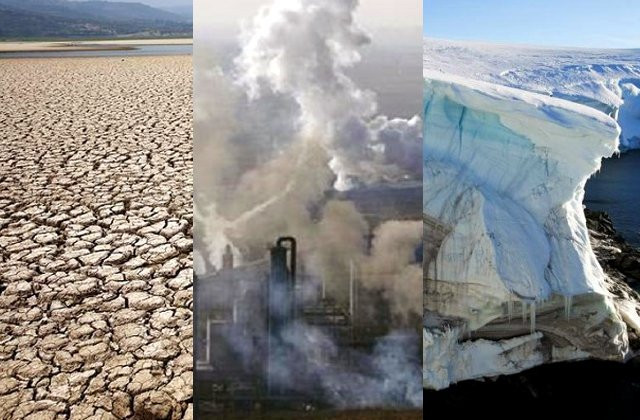World has three years to save humanity from climate change, warn experts
With no time to wait, all countries should adopt plans for achieving 100 per cent renewable electricity production

PHOTO: REUTERS
An article published in a journal called 'Nature' called for global leaders to take action, informing them that "entire ecosystems" were starting to collapse as the ice disappeared into the Arctic and coral reefs have started to die from rising temperatures.
According to the article, global emissions had been on a rapid rise, with the possibility of carbon emissions crossing the target of 1.5 to 2 degrees Celsius from between four to 26 years if emission levels continued to rise. Meanwhile, experts said that carbon emissions must start to fall rapidly from 2020, the Independent reported.
Pakistan hopes for UNDP aid in setting up institutions under Climate Change Act
The experts, led by Christiana Figueres, Executive Secretary of the United Nations Framework Convention on Climate Change, said, “Should emissions continue to rise beyond 2020, or even remain level, the temperature goals set in Paris become almost unattainable."
Since the 1880s, global temperatures have risen by about 1C per year as a result of greenhouse gases created by human activity. Currently about 41 gigatonnes of carbon dioxide are emitted per year but if the Paris agreement targets are to be met, the carbon 'budget' is between 150 and 1,050 gigatonnes.
Experts wrote that if the levels of emissions remain the same, we would have to drop the emissions to zero right after the carbon budget is exhausted, while a more gradual process would give the global economy enough time to adapt.
Most LG officials in the dark about climate change
The article urged leaders around the world to help fight the climate change. “With no time to wait, all countries should adopt plans for achieving 100 per cent renewable electricity production, while ensuring that markets can be designed to enable renewable-energy expansion,” experts wrote.
While the article mentioned that climate change would impact the poorest and the weakest first when "droughts and sea-level rise", at the same time it said, “The good news is that it is still possible to meet the Paris temperature goals if emissions begin to fall by 2020.”
This article originally appeared on The Independent.



1726734110-0/BeFunky-collage-(10)1726734110-0-208x130.webp)















COMMENTS
Comments are moderated and generally will be posted if they are on-topic and not abusive.
For more information, please see our Comments FAQ